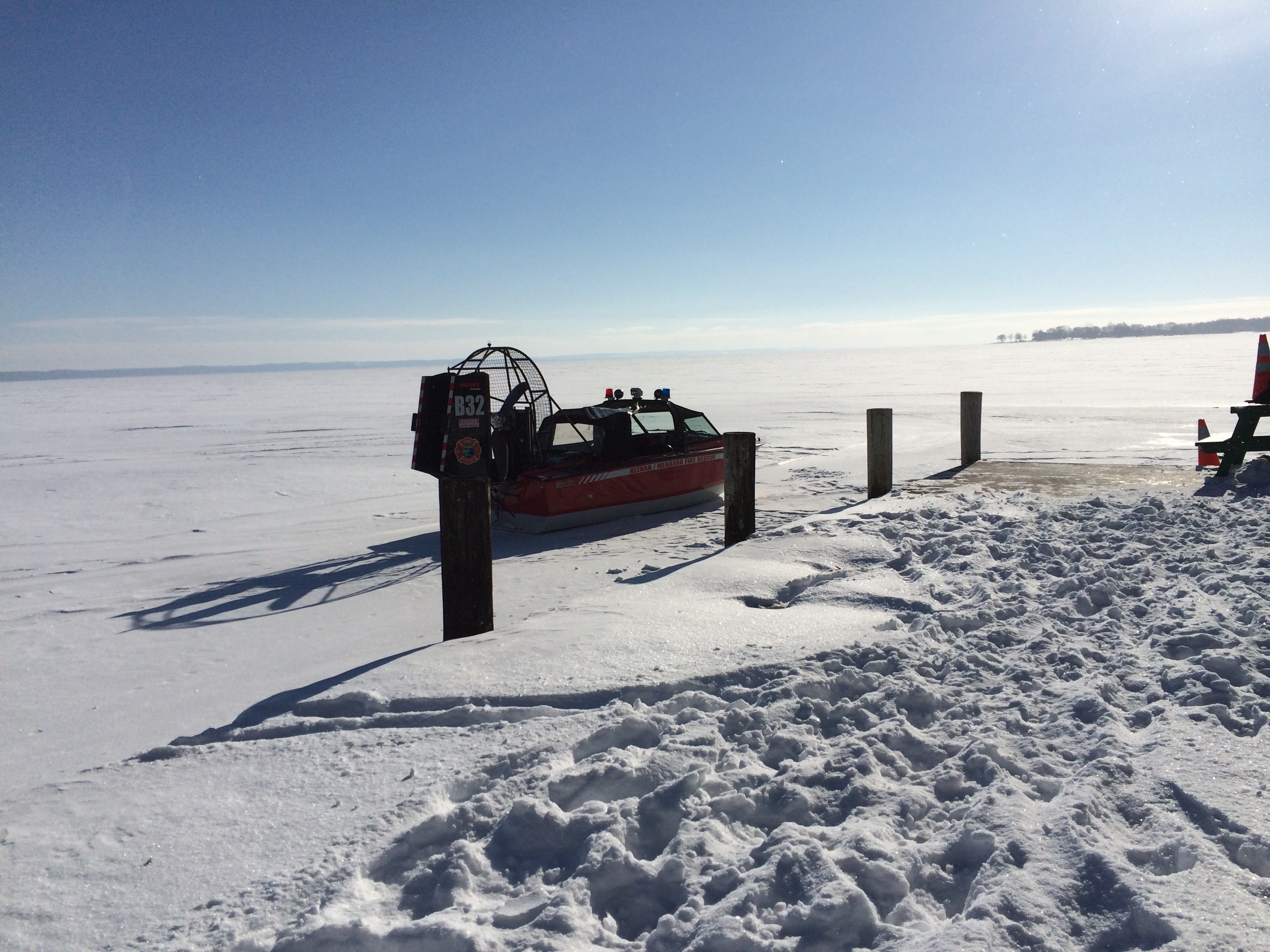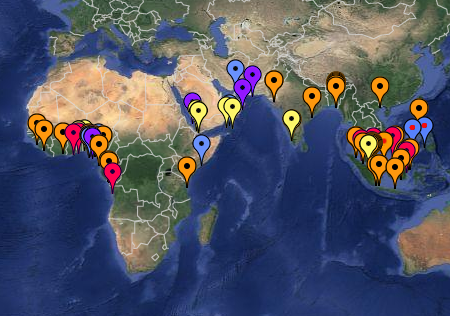airboat crews train for rescue
published: 13 January 2015
by: Emily Matesic
As temperatures drop and ice forms, more and more people will start to head out onto local waterways. With ice fishing underway and sturgeon spearing season getting ready to start, the Neenah-Menasha dive team is training for rescue attempts should anyone fall through the ice.
The Neenah-Menasha dive team is responding to an ice rescue call on Lake Winnebago. While it may only be a training exercise, it’s a chance for members of the dive team to practice their skills — should the real call come in.
“It is the best training in the world,” says firefighter and dive team member Chris Hillen. “We also train at the YMCA pool. We do entanglement drills there, we do swimming drills, but nothing compares to actually getting out in the environment that we’re going to actually do rescues in.”
The scenario includes rescuing a man who fell through the ice, but is still clinging to the surface. A team walks out and pulls him from the water, returning to shore.
But it’s that victim’s friend who has fallen into the water and not resurfaced that the dive team now needs to try and save. The team uses its air boat to transport the gear and the divers out to the rescue site. In this this scenario, divers actually get in the water, they work with team members above the surface, and eventually pull the victim out.
It’s a practice run that will be analyzed so when the real call comes in, this team is ready to act and act quickly.
Firefighter and air boat driver Jeff Schweitzer says, “Like anything else you do, you gotta practice it and the only way you know if you’re good at it or what you need to change is by practicing it and seeing what you’re made of.”
In the three years since the Neenah-Menasha dive team has been created they’ve been called out to two rescue calls, one was an open water, one was an ice rescue. Those calls could come in at anytime which is why trainings like this are important.
Assistant Fire Chief Mike Sipin says, “It’s not something that happens every day which is a good things but we want to make sure our people are on the top of their game, be able to get the equipment on as quickly as possible and get out there and try to make a difference.”



